Homeowners and residents greatly contribute to Queensland fire safety. Fire is a threat to everyone and those who don’t prepare often experience most of the damages when a blaze occurs. Obviously, we all want to give our family a higher chance of survival by taking important fire prevention steps. One of which is to update your smoke alarms by the new Smoke Alarm Legislation, and ensure that all the smoke alarms are functioning and properly maintained. It is also important to have a fire evacuation plan to guarantee the safe and fast escape if a devastating fire starts.
According to reports, most home fire emergencies take place when people are asleep. Many of fatal fires are preventable through proper preparation and prevention measures. Follow these simple Queensland fire safety initiatives at home to protect yourself, your family, and your treasured property from the clutches of a deadly blaze.
Queensland Fire Safety Activities in the Kitchen
Most fires start in the kitchen. Follow these Queensland fire safety activities when cooking.
- Keep an eye on the pot
While cooking, keep all eyes on the pot. Turn off the hot plates. Hold something to remind you that you’re cooking, like a wooden spoon or a tea towel, if you have to leave the kitchen.
- Clear the cooking area
Flammable materials such as curtains, tea towels and oven mitts should be away from the stove area.
- Control the splatter
Be careful when cooking with oil. To avoid splatters when cooking, choose the correct kind and size of saucepan for the job and keep the heat low enough. Every saucepan should have a lid, particularly when oil is simmering. Keep the cover handy as it can be used to smother the fire.
- No water needed
Water does not distinguish fat or oil fires. It can spread fire and can cause serious injury.
- Extinguish the flame
If a fire does start on the stove:
– Switch off the heat source either on the stove or at the fuse box.
– If cooking oil catches fire, slide a lid over the pan or use a fire blanket to smother the flames.
– Do not remove the pan, cover it with a fire blanket until the pot has cooled down, as the fire will re-ignite if the oil is still hot. Never carry a burning pot – horrific burn injuries can happen.
– Keep the stove clean and clear of grease.
– Consider setting up a stove guard to keep inquisitive fingers away.
– Fire extinguishers and fire blankets are important items in every home. They should be located close to the entrance of the kitchen.
– After you have purchased a portable fire extinguisher (dry chemical type) or fire blanket, it is necessary to familiarise yourself with its functionality.
Queensland Fire Safety in the Bedroom
Queensland fire safety determined that the common causes of fires are faulty appliances from home. Have your appliances regularly inspected by a professional tradesperson, like electric blankets, heaters, air conditioners and fans.
Electric Blankets
All electric blankets sold on the market must comply with the tough Queensland fire safety standards. Irresponsible use can cause electric shock, fire, and even death. Most fire accidents are caused by carelessness or by old blankets that have not been regularly tested.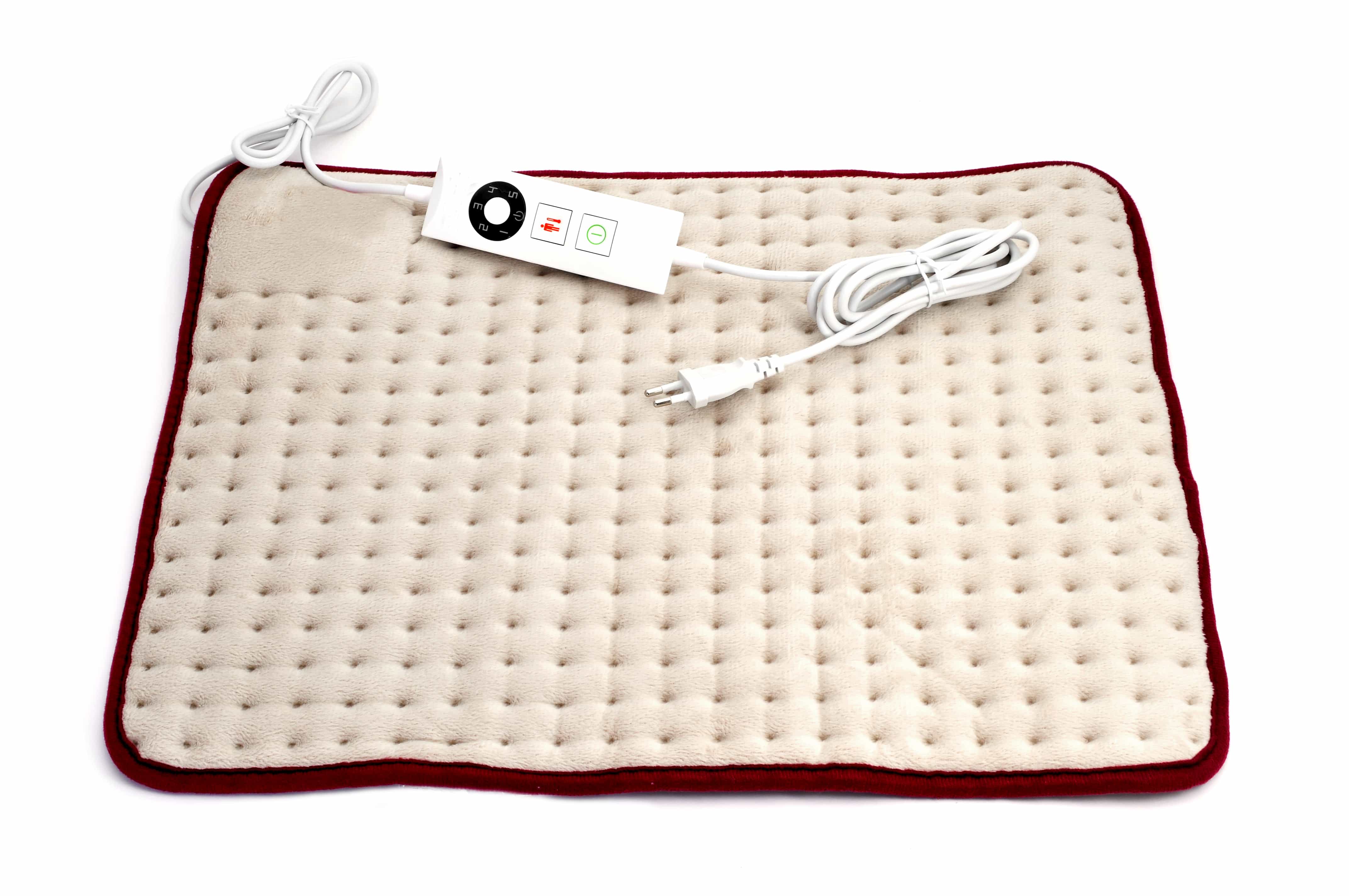
- Always read and follow the manufacturer instruction.
- Do not use an electric blanket with a water bed.
- Leave the blanket on the bed, never fold for storage as it may damage your blanket.
- Ensure that your electric blanket is laid flat and tied tightly to the bed.
- Sleeping with your electric blanket on is considered dangerous as it can overheat.
- Always switch off your electric blanket before going to bed or leaving the house.
- Putting heavy materials on your electric blanket can damage the wiring in the blanket and could cause a fire.
- Run your hand over the sheet periodically and if you feel overheating, turn it off and have the blanket checked by a professional repairer.
- Never lay a baby on an electric blanket – they can dehydrate and get burns even at low temperatures.
Electrical Hazards
Overloaded electrical circuits, faulty electrical equipment and misuse of electrical equipment are common causes of house fires. The following Queensland fire safety measures are recommended.
- Never run extension cords under carpets or rugs. Localised heating may cause a short circuit that could result in a fire.
- Change any worn out or broken extension cords.
- Fix or get rid of the malfunctioning electrical appliances promptly.
- Replacement fuses must have the right load limit for the circuit. A professional electrician should identify the cause of continuously blowing fuses or tripping circuit breakers.
- Have built-in earth leakage circuit breakers connected to all power circuits for additional life safety protection?
- Switch off electrical equipment when not in use.
- Provide adequate ventilation around all electrical equipment to avoid excessive heat build-up.
- Follow the manufacturer instructions when using all electrical equipment.
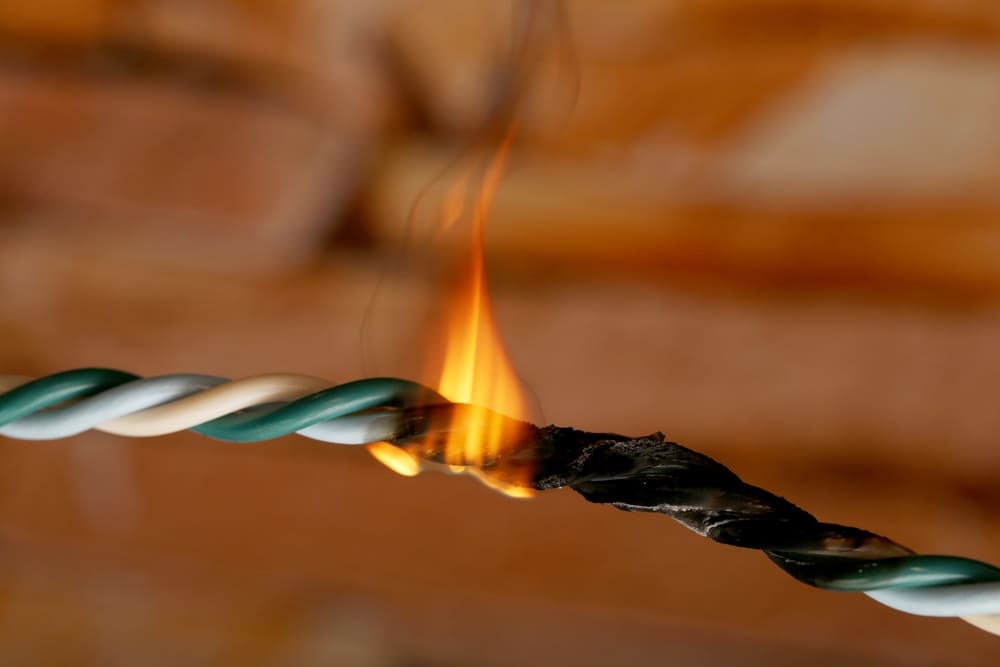 Queensland Fire Safe in the Lounge
Queensland Fire Safe in the Lounge
Protect your home, family and property by carrying out the right Queensland fire safety measures to prevent house fires.
Good habits for heating
Home fires can be caused by the unsafe use of heaters. The following fire safety tips are recommended:
- Always put clothes, newspapers, kindling and other flammable objects at least one metre away from any heater.
- Make sure that only the required fuel is used in liquid-fueled heaters.
Installation
Portable heaters
- For portable heaters, choose models that have automatic safety switches that can turn the heater off if tipped over.
- Place portable heaters away from the locations of heavy traffic.
- Keep your heater turn off when going to bed or leaving the house.
- Keep portable electric heaters away from wet areas to prevent the chance of electric shock.
Chimneys and flues
- Has your flue been installed properly?
- Isolate the flue from roofing timbers and wall panelling.
- Flues and chimneys should be cleaned annually to avoid a build-up of flammable substance and ensure the heater operates correctly.
Open Fireplaces
- Put a metal mesh guard in front of open fires to safeguard against the flying sparks and embers.
- Unless well-guarded, extinguish the fire thoroughly before leaving the house or retiring for the night.
- Guards help protect children from burn injuries.
Electrical Appliances
Most lounge rooms have several appliances used for entertainment and comfort. The following Queensland fire safety practices are recommended:
- Do not overload power points.
- Use four outlet power boards with overload protection.
- The use of double adapters is not recommended.
- If electrical appliances are not functioning properly, don’t try repairing it yourself. Contact a professional electrician.
Queensland Fire Safety in the Shed and Garage
Garages and sheds often pose fire safety hazards. To ensure the safety of everyone and the protection of your property you should follow the Queensland fire safety measures.
Fuels and Solvents
Flammable liquid substances – petrol, two-stroke mixture, kerosene and turpentine – are usually located in domestic workshops and garages.
Depot flammable liquid substance such as petrol, kerosene, methylated spirits, paints and solvents must be well away from heat sources such as barbecue grill, etc.
Pool Chemicals
The chemical substance used for chlorinating swimming pools are usually reactive oxidising agents that may respond with other common garden shed materials to cause a fire. Granular pool ‘chlorine’ (calcium hypochlorite) may outset a fire if it reaches the fuels, oils, brake fluid or detergent. It responds to acids to release the toxic gas chlorine, so it must be kept solely from pool acid (hydrochloric acid).
Liquid pool ‘chlorine’ (sodium hypochlorite solution) is a corrosive liquid. It also responds to acid to release chlorine and must be stocked solely from pool ‘acid’. The different types of pool chemicals – granular pool ‘chlorine’, liquid pool ‘chlorine’ and pool chlorine tablets – should not be mixed or used together. Some combinations are incompatible and may cause fires or explosions.
All of these kinds of chemical substance must be kept in an isolated location separate from other fuels and chemicals found in sheds and garages.
Garden Chemical Substance and Pesticides
All garden chemicals and pesticides must be kept in a secure place, out of children’s reach. A secured cupboard or steel cabinet located above a child’s reach is the best storage. These chemicals should be kept in their original containers which will have description giving their correct brand and the proper safety precautions. Any remaining material should be discarded unless it is to be kept in a properly-labelled container.
Oily Rags
Rags that have been used with drying oils, such as linseed oil, or oil-based paints may self-heat and immediately set on fire if they are not properly dealt with after use. This is a problem only with ‘drying oils’, which include some vegetable oils (including some oils used in cooking) and animal oils. Linseed oil is the best-known example of a ‘drying oil’. Mineral oils, like white spirit, mineral turpentine or lubricating oil, are not prone to self-heating and will not ignite spontaneously. Rags used with oil-based paints or glazes, linseed oil or other drying oils should either be immersed in water or spread out in a safe place to dry immediately after use.
Majority of fatal fires are preventable. You just need to follow proper Queensland fire safety precautions to minimise the risk of a fire in your home.
Always prepare your family and your home from a fire. Now that you know the right measures, you might as well as comply with the Queensland fire safety law, to professionally equip your home with the smoke alarms.
Which smoke alarm brands can be installed in your home? Are your smoke alarms compliant with the Queensland fire safety law? Our experts can help! Just click a button below, and we’ll get in touch with you shortly.

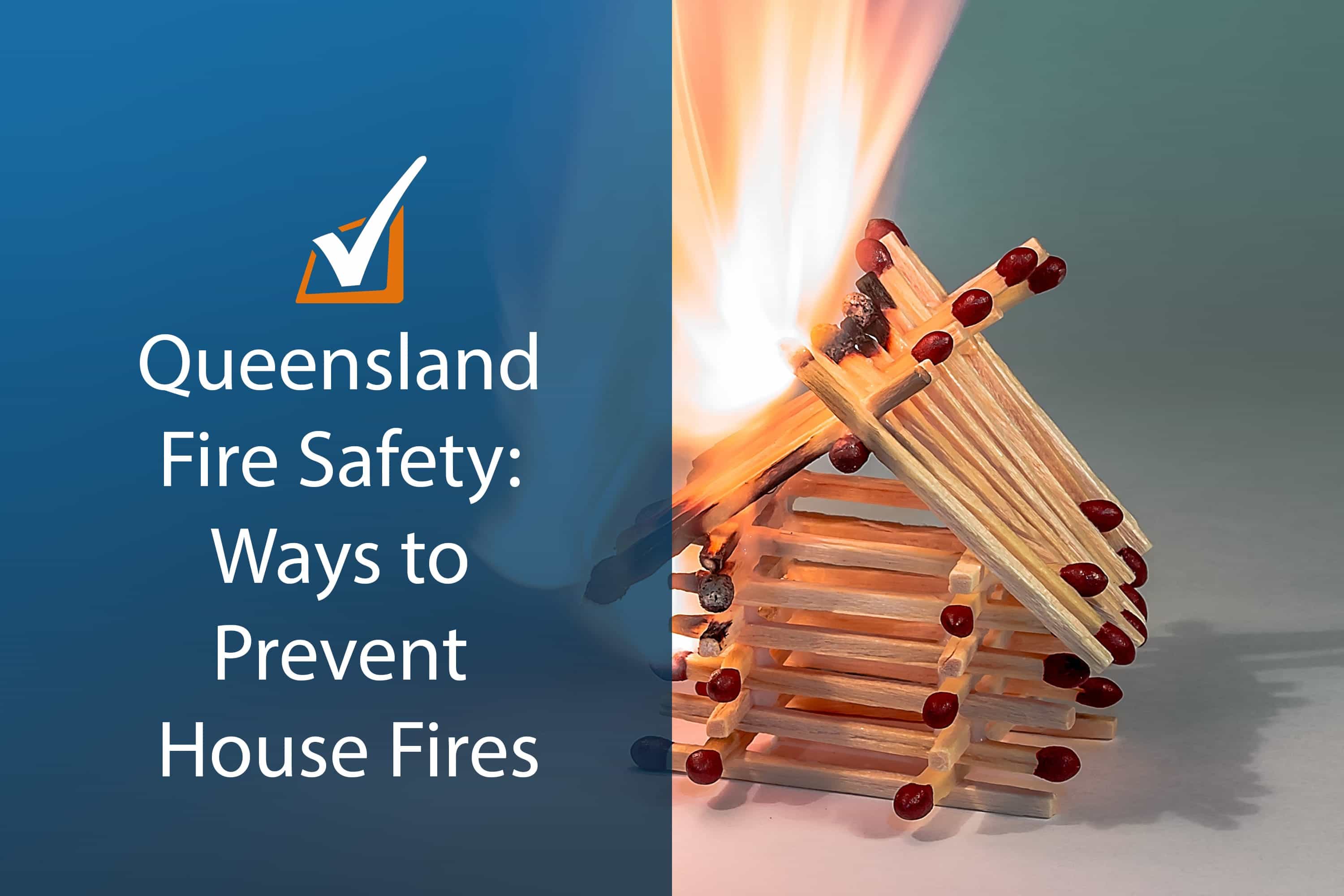
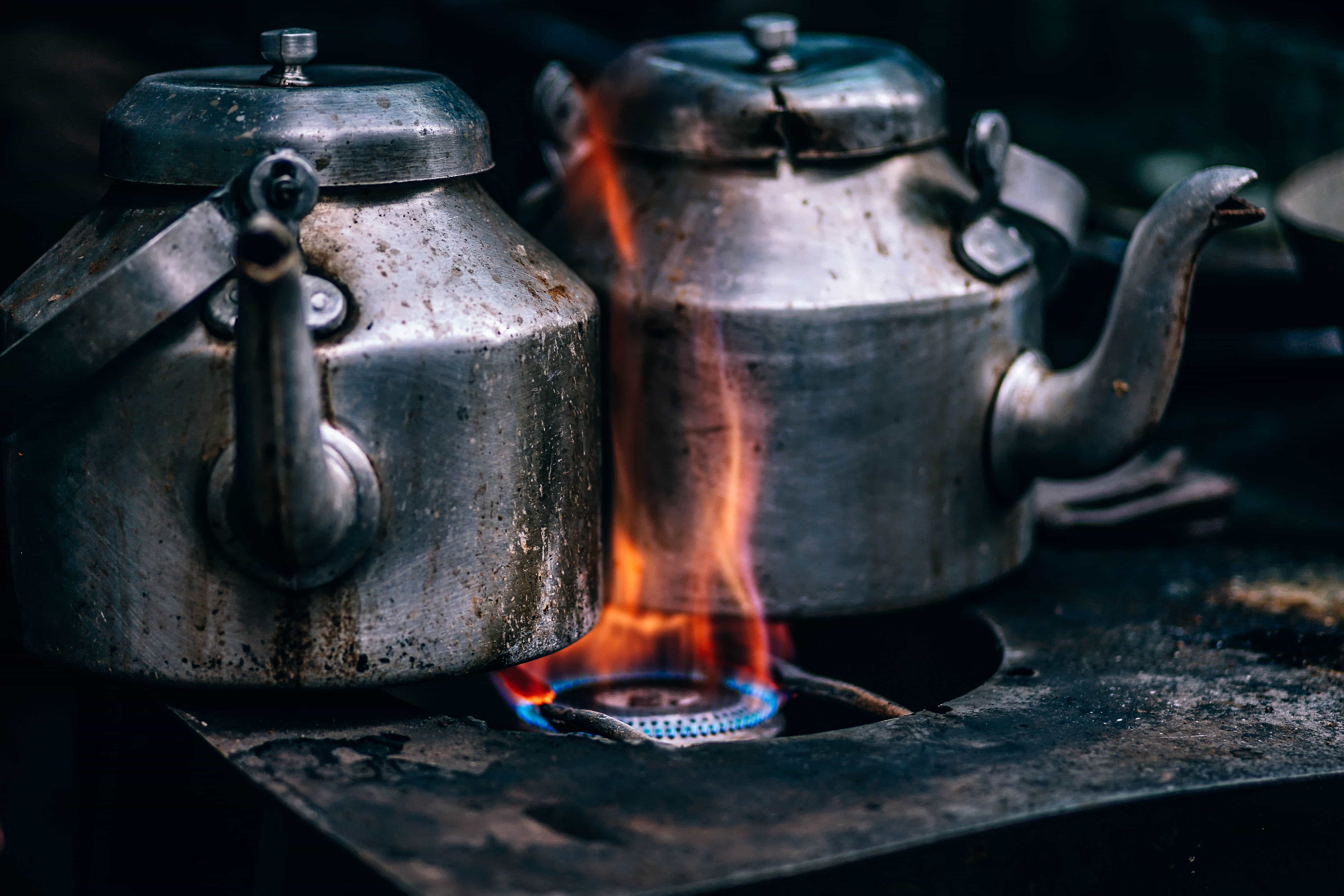
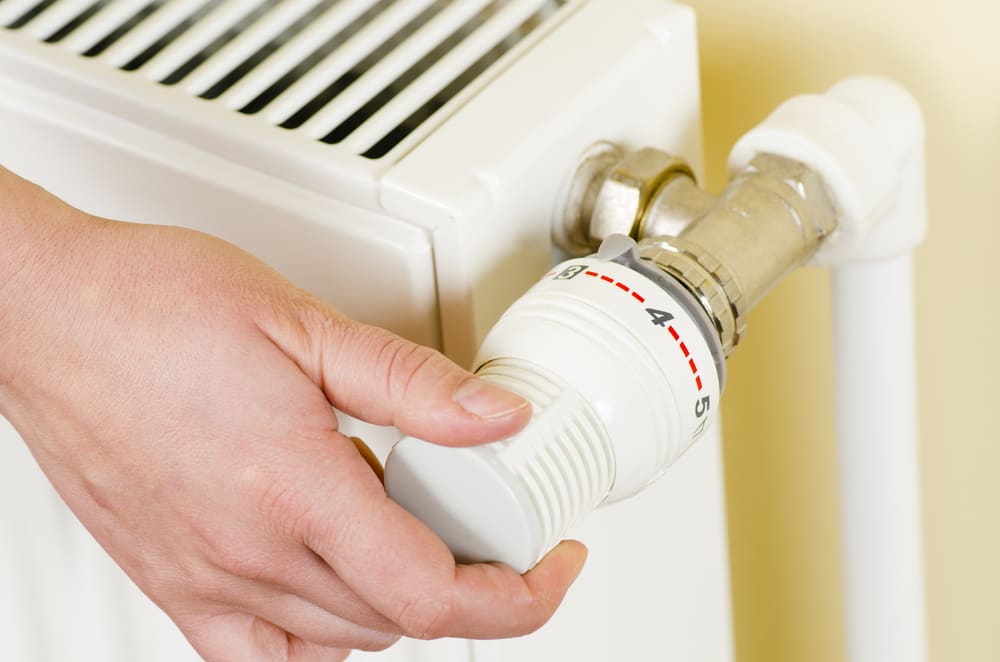
Leave A Comment